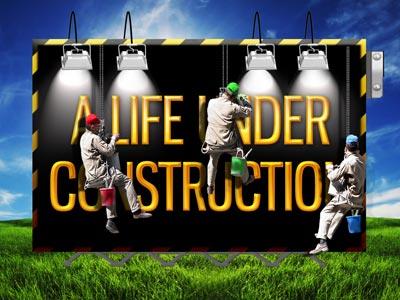-
The Only Thing Constant Is Change
Contributed by Victor Yap on Jun 28, 2008 (message contributor)
Summary: Nehemiah, Pt. 3
THE ONLY THING CONSTANT IS CHANGE: FROM AMBITION TO ADVANCEMENT (NEHEMIAH 2:11-20)
In the movie Braveheart about Scotland’s struggle for independence from the English at the turn of the 14th century, William Wallace attempted to persuade the Scottish nobles to discontinue their ties with the English, unite the fragmented Scottish clans and mobilize them to fight Edward Longshanks, the ruthless English king, and the superior English army. Joint effort from the Scottish nobles and the clans was the only chance for freedom; however, the nobles were often bribed by the English king.
One day, the usually selfish nobles, uncharacteristically, offered Wallace to unite behind him in battle. Hamish, Wallace’s boyhood friend and loyal right-hand man, suspected the nobles were bribed to betray Wallace to the English, and passionately appealed to Wallace not to believe them: “It’s a trap. Are you blind?” Wallace replied realistically, “Look at us. We’ve got to try. We can’t do this alone. Joining the nobles is the only hope for our people.” Wallace then asked an intriguing question, “You know what happens if we don’t take that chance?” Hamish shouted in despair, “What?” And Wallace quietly but firmly answered his angry friend: “Nothing!”
Change is usually slow, often difficult, but always inevitable. Three sayings are to bear in mind on change. First, if it ain’t broke, don’t fix it. Second, the only ones who welcome change are wet babies. Third, the only constant in life is change. Without change there is no breakthrough, no progress and no advancement. It’s been said, “If you keep on doing what you always did, you’ll keep on getting what you always got!”
Nehemiah was a man of prayer and a man favored by the king. He had come before God in three great confessions in the first chapter. And in chapter 2, he answered Artaxerxes’ three pointed questions, to the king’s satisfaction. He showed that he was ready. But how do you tell others about a personal vision or announce a group project? To change things, to convince people to accept change and to coordinate and cope with change? Nehemiah faced the inhabitants and leaders of Jerusalem -the priests, nobles, and officials – and told them how God had revived him in a powerful way and how God had put in his heart a desire to rebuild the city. The Chinese say, “Starting is easy, sustaining is hard.”
What preparation is necessary for change to occur? How do we ready others for change? Why is change not mere say but hard work?
Experience and Inspect Things Before You Start
11 I went to Jerusalem, and after staying there three days 12 I set out during the night with a few men. I had not told anyone what my God had put in my heart to do for Jerusalem. There were no mounts with me except the one I was riding on. 13 By night I went out through the Valley Gate toward the Jackal Well and the Dung Gate, examining the walls of Jerusalem, which had been broken down, and its gates, which had been destroyed by fire. 14 Then I moved on toward the Fountain Gate and the King’s Pool, but there was not enough room for my mount to get through; 15 so I went up the valley by night, examining the wall. Finally, I turned back and reentered through the Valley Gate. 16 The officials did not know where I had gone or what I was doing, because as yet I had said nothing to the Jews or the priests or nobles or officials or any others who would be doing the work. (Neh 2:11-16)
When I first arrived in Riverside, an hour’s drive from Los Angeles, for ministry, I discovered that the church had to make some physical changes to prepare itself for guests and visitors. Change was due. The church was located in an unincorporated low-income area of Riverside County. The congregation sang hymns from two different hymnals to make up for a shortage of hymnals – and consequently two different hymn numbers were printed in the bulletin for the same song. Further, five or six flies were often swarming around the Lord’s table area during the worship hour, displaying their aerial skills and pesky flight.
The real battle was with the men’s restroom. The little country church restroom had big problems. For years, a flimsy curtain, instead of a wooden door, was used as for a restroom door. Further, yellow vertical lines were lining the urinal.
Cosmetic changes were needed. We bought new hymnals. The board vice chairman replaced the door himself and put in a wooden door. I got rid of the urinal lines, using powerful lime removal. For good measure, we replaced the worn-out sanctuary and nursery carpets, thereby giving the flies less reason to return. An ecstatic board member shared that I had moved the church five years ahead in just one year.

 Sermon Central
Sermon Central



